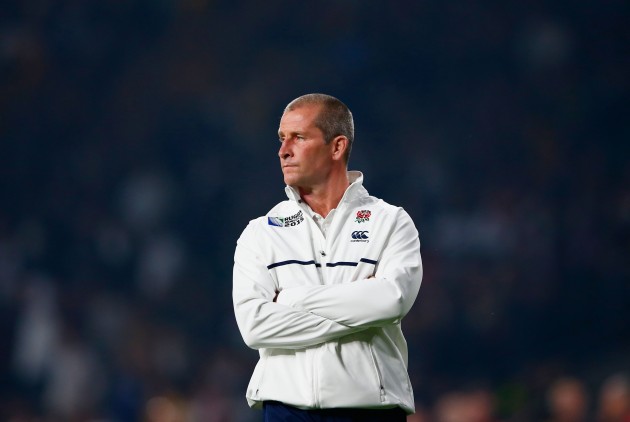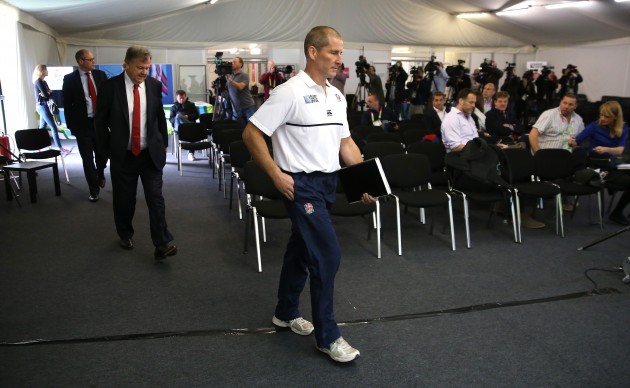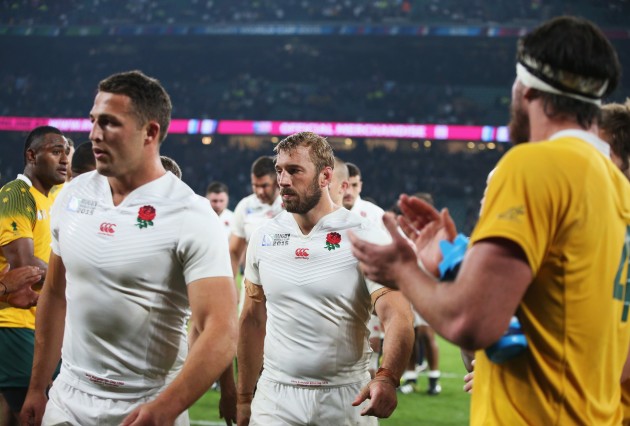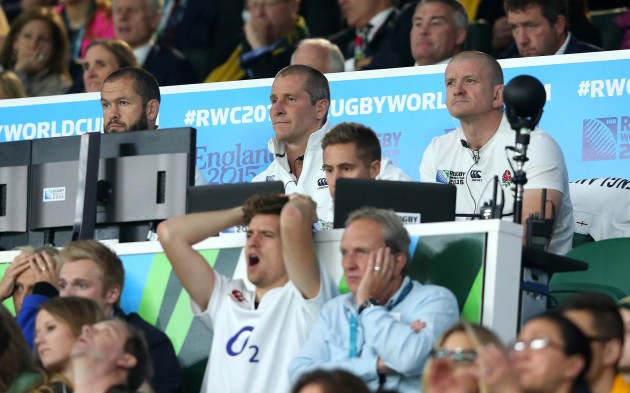There was a solemn air at Twickenham as Stuart Lancaster was relieved of his duties after nearly four years in charge but change was required after World Cup humiliation
When looking at how England have found themselves coach-less 11 days after their own World Cup finished, it’s only right and proper to rewind to January 2012 when Stuart Lancaster was appointed as interim head coach in the wake of the calamitous 2011 Rugby World Cup campaign.
Most casual rugby fans first question was, ‘Stuart who?’ The low-key Cumbrian barely registered on public’s consciousness, especially in comparison to the man he succeeded, Martin Johnson, England’s revered World Cup winning captain.
However, with England reeling from a tournament in which their character and judgement was ridiculed and attacked in equal measure, Lancaster’s disarming humility and rigid moral compass was a counter-point to the chaos that had preceded him.
With RFU Chief Exec Ian Ritchie himself just becoming accustomed to his plush new environs in TW2, Lancaster’s audition for the full-time role went almost too well.
The last vestiges of the 2003 World Cup winning side were ushered into retirement and a new swathe of players, many of whom he’d nurtured on England Saxons duty, were welcomed into the bosom of Team England. Four wins and a solitary loss to Wales, thanks to a late Scott Williams try, nevertheless left England with a feel good factor that meant reservations about his lack of experience and suitability to the role full-time were cast aside.
Lancaster was given the job full-time.
There followed three further Six Nations campaigns, where England finished eternal bridesmaids, winning more often than not, showing spirit, doggedness and a flickering of bums-off-seats talent. And yet every time they threatened to lift the Six Nations trophy they slipped up, showing naivity, a lack of concentration or plain bad luck.
In 2013, it was again Wales, where the acting Wales coach Rob Howley had given Lancaster the most chastening day of his career to date in Cardiff’s cauldron winning 30-3.
For every loss, the same platitudes were trotted out about seeing improvement and learning from mistakes under pressure. In 2014 it was France’s Gael Fickou who broke English hearts late on – you see a theme emerging – in the tournament’s opening weekend, before four wins on the trot saw them waiting in an Italian hotel to see Ireland snatch the Six Nations championship from them.

Finest hour: Stuart Lancaster and his England coaches celebrate a stunning win over the All Blacks in 2012
The first signs of stagnation came in the summer of 2014 with a 3-0 Series loss All Blacks. This was followed by losses to New Zealand and South Africa in the Autumn. Less than a year out from the World Cup, faith in Lancaster’s ability to hoist a home World Cup was being openly questioned for the first time.
Earlier this year, despite Robbie Henshaw’s baletic leap again consigned them to another second-placed finish– they had cast aside their stereotype of pragmatism with a giddy 18 tries on the way to a rip-roaring 55-35 win over France, with gifted duo George Ford and Jonathan Joseph to the fore. England’s attacking licence and home advantage left Southern Hemisphere sides, and many shrewd commentators alike predicting a New Zealand v England final.
Sadly, from there it started slowly unraveling. Within weeks, Dylan Hartley and Manu Tuilagi were excluded from the World Cup reckoning for disciplinary problems on and off the field. The final laborious reduction, from an initial bloated 51-man squad to 31, seemed plodding and lacking in clarity.
As ever Lancaster put on a stoic public face, despite outcry at the exclusions of Danny Cipriani, Nick Easter and Luther Burrell, who had been dumped for England’s cause célèbre, Sam Burgess, reasserting that he was confident in his selection policy.
Any air of conviction dissipated further in the clammy Parisien air in August, where a pedestrian France were made to look like world-beaters, outmuscling and outthinking an England side who looked leggy and bereft of ideas.
Despite a win over Ireland, England tip-toed bashfully into the World Cup in anything but tub-thumping fashion despite the incessant PR campaign swirling around them.
The end was swift. England lasted just 16 days at their own World Cup. A calamitous denouement to four years of planning and hyperbole. First Wales had the Red Rose teetering with a sluggers desperate punch after a late Gareth Davies try, before Michael Cheika’s streetwise Wallabies landed the knockout blow with a performance of enterprise and guile that England lacked.
To hear a cacophony of boos and catcalls at the end of the game must have been acutely painful for the proudest of Englishmen.
At the press conference after the game, Lancaster was ashen-faced, still clearly in shock. He said his future would be in the hands of others, while applauding the Pool’s escapees, Australia and Wales. Honourable to the end, his body language – slumped shoulders, eyes downcast – suggested a man waiting for the inevitable.
That it’s taken the RFU 41 days to make the decision, is in part so as not to deflect attention from a joyous, wondrous tournament but while other sides bowed out of the competition, reputations intact, English rugby had already started to tear itself apart, with petty Twitter spats, player-coach fallouts, newspaper leaks about unrest and Mike Brown bemoaning a loss of trust between players.
After a heart-to-heart with Ritchie yesterday, today’s announcement will have come as some sort of small mercy for Lancaster, who can now take time away from the game, to ponder his next move.
While a move ‘upstairs’ within the RFU was this evening ruled out, his wealth of knowledge, hard-earnt experience and respect within the game, means a new challenge shouldn’t be far way.
For the new England coach – which seems likely to come from outside England for the first time ever – his job will be to unify, inspire and walk the political tightrope, in order to build a team to be genuine contenders for Japan 2019.
The in-tray will be overflowing but there is a gilt-edged opportunity for an ambitious individual to become the best-paid coach in World Rugby.
For the latest Rugby World subscription offers, click here.








